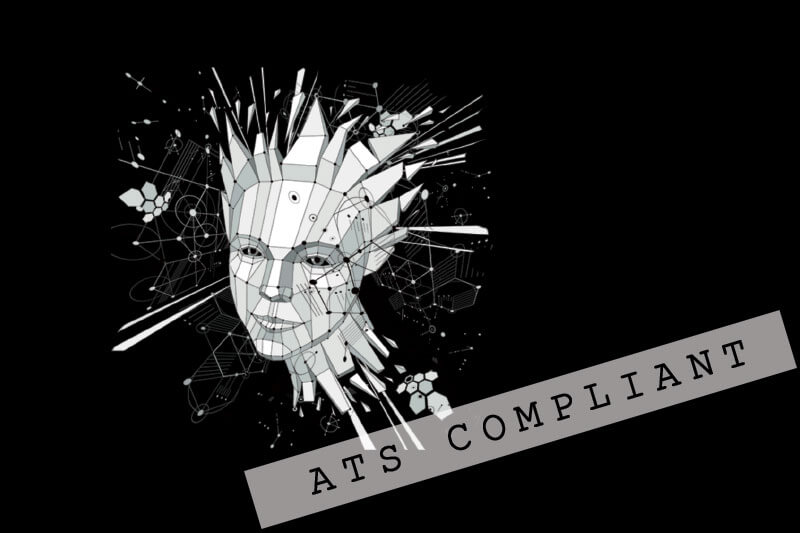Today’s job market has never been tougher. Whilst UK unemployment rates appear to be dropping, this is largely due to an increase in low-paid, low skill jobs that are readily snapped up by those previously out of work (retirees looking to top up their pensions, students, benefits claimants suffering under stricter rules etc). Consequently the official statistics paint a less-than-accurate picture of the reality: competition for jobs has never been higher.
With so many good applicants putting themselves forward for every role, candidates have to work harder to stand out from the pile. In this article we look at a number of ways you can make more of an impact with your job application.
Harness the power of LinkedIn

LinkedIn really is a no-brainer for job seekers and it baffles me why more people don’t harness its power.
First, your CV is typically confined to just two pages – but your LinkedIn profile isn’t! You can provide a lot more detail on LinkedIn and as a bonus, you can get professionals within your industry to write you endorsements.
Secondly, companies use LinkedIn to headhunt all the time. Filling out your profile fully puts you in front of recruiters who are looking for people like you.
TIP: I’ve recently posted a comprehensive guide to building a killer LinkedIn profile and using the platform to maximise your chances of being head-hunted. I also like Lauren Holliday’s Ultimate List of LinkedIn Profile Tips for 2019 – check it out.
Use Twitter to your advantage

Twitter can be a dark, horrible place full of frankly mean people and I can forgive people for wanting to stay well clear of the Twittersphere. However, doing this is a missed opportunity in a professional sense, for a number of reasons.
First, more employers than ever before are checking out prospective employees’ social media accounts (a good reason to perform a thorough clean up before applying for any job!). This is a great opportunity to show that you’re actually interested in your industry and actively participating through posting, commenting and retweeting.
Second, all your key industry influencers are on Twitter. Following them is one of the easiest ways to keep bang-up-to-date with industry developments. It’s also a great way to start making connections within your industry.
Finally, jobs get posted on Twitter all the time. Follow a lot of people within your industry and you may just find you’re one of the first to know about a juicy opportunity.
TIP: This post by Jessica Murray on Save the Student tells you everything you need to know about job hunting on Twitter.
Choose an ATS friendly CV Template

ATS software tends to be used by larger companies, but you can never be sure which firms are using it and which aren’t. The safest strategy is to use an ATS-friendly template, giving you reasonable confidence that if the firm is using the software, your CV is less likely to get rejected by the system. If they’re not using it, you’ve lost nothing.
TIP: We’ve got a tonne of free Word CV templates, including plenty of ATS-friendly choices.
Understand the F-pattern

Every now and then I see someone getting excited about the ‘F’ pattern – the way that people read online content. “Use this for your CV!” they’ll claim excitedly – completely missing the fact that the F pattern is a BAD thing.
I wrote an article on understanding the F pattern which explains why you don’t want people to read your CV that way, and how you can avoid this. I recommend every job seeker reads it before writing their own CV.
TIP: Read my guide to what the F pattern is and why should you AVOID using it on your CV.
Tailor your CV

You’ve probably heard those words repeated to you over and over again to the point that you’ve switched off by now, but this really is the most powerful way to boost your chances of success in the job market. Don’t print off 20 generic CVs and hand them out. Study the job advert and use the exact words and phrases from the ad when writing your CV (assuming they apply). This is essential for EVERY role – and even more important if your employer is using ATS software.
TIP: Read Martin’s guide to tailoring your CV here.
Show, don’t tell

Another rather overused phrase is ‘show don’t tell’: it comes off the back of employers getting fed up of reading the same old jargon on piles of CVs. ‘I’m a team player’. ‘I’m a great communicator’. ‘I work well in a team or on my own.’ The problem is, everyone says the same thing without providing it, and the words are empty.
Typically employers list the soft skills they want to see in the job advert (good communication, team work, diligence, up-to-date industry knowledge etc). The most powerful way to demonstrate you have those skills is to give examples of when you’ve used them, or how you acquired them. Here are some examples:
“I research and write 2 – 3 times a week for my firm’s blog which helps me keep up-to-date with industry knowledge.”
“I consistently exceeded my month-on-month target during 2017/18 by 10 – 15%.”
“Our team of 5 came up with the ‘Orange Sofa’ awareness campaign which we designed and successfully launched nationwide in our stores, resulting in revenues of £250k.”
“I was awarded employee-of-the-month 3 times in 2017 for diligence, teamwork and good ideas.”
Each of these statements provides evidence to the employer that you have the soft skills they’re looking for.
TIP: Martin’s guide to the best words to use in a CV or Résumé is really helpful when it comes to CV writing and demonstrating your achievements.
Be your authentic self

Whilst you need to check all of the recruiter’s boxes when it comes to work requirements, companies are looking for more than skills and qualifications. Hiring and training is an expensive process, so it’s so important for them to find someone that will be a good cultural fit for their team and company.
As a job seeker it’s natural to try and present the persona that you think the company is looking for.
The inspiring and very lovely Gina Battye, authenticity coach, teacher and award-winning LGBT speaker, explains:
“We don’t want to look stupid, wrong, like a failure, an imposter or vulnerable in any way. So what do we do? We tweak how we present ourselves to protect, to fit in and to be accepted.”
But it’s not difficult for me, or any other recruiter, to spot someone who is not being authentic. It comes through in the social posts you make, the CV and cover letter that you write and in the interview itself, should you get to that stage. Those signals can be interpreted very badly and can lose you opportunities. On the flip side, being your authentic self will boost your chances of success in the job marketplace.
TIP: I had the pleasure of meeting Gina about a year or so ago while I was working with April King, and what she said really resonated with me. I recommend you connect with her – she offers both a home study course and face-to-face sessions to help you become your authentic self.

There are so many guides like this on the web but I feel yours really gave me food for thought. Thank you Jen.